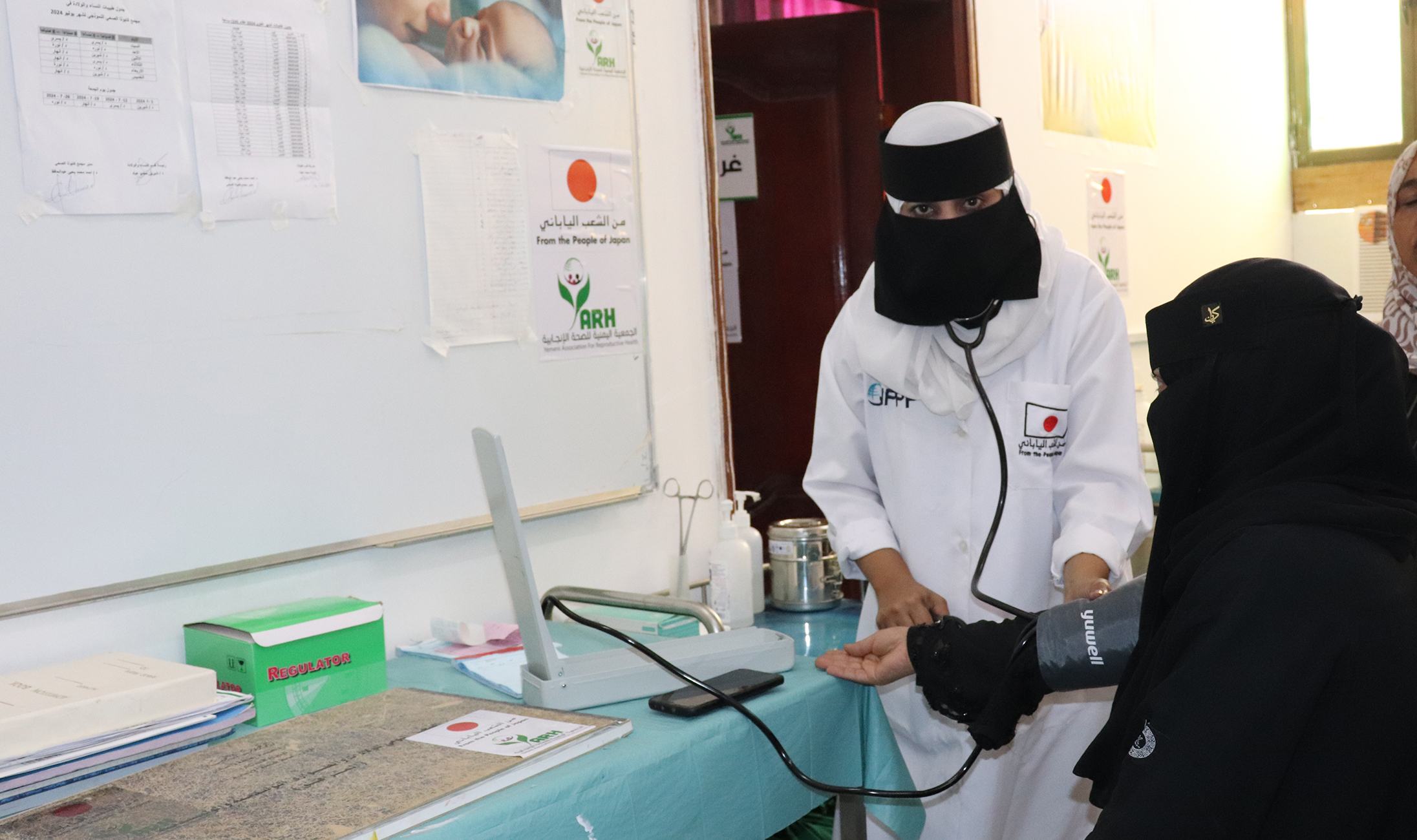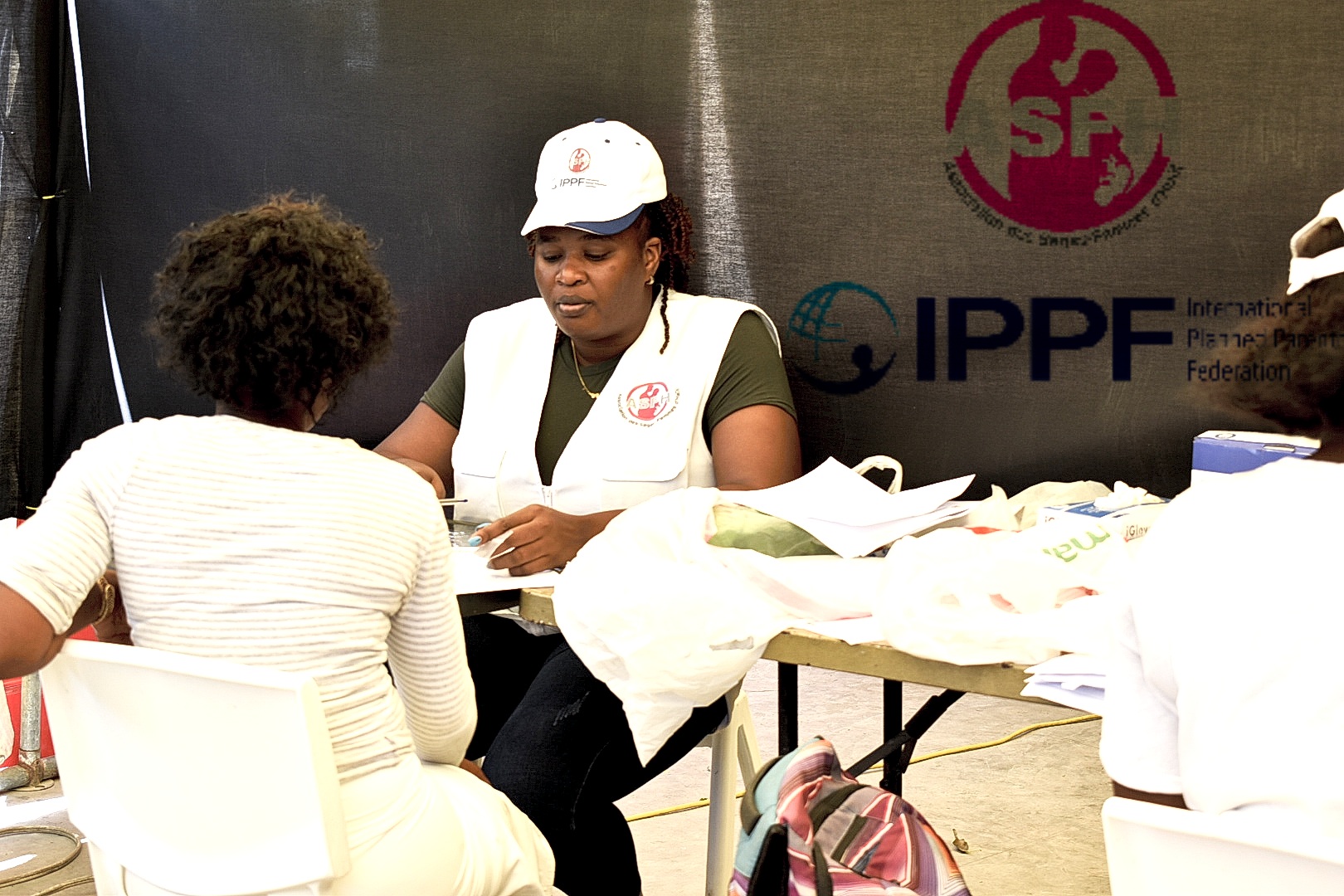Latest press releases
A selection of stories from across the Federation

Netherlands
Rutgers triumphs in landmark court case against lies, online hate and disinformation
Rutgers, the Netherlands’ leading sexual and reproductive health expert and IPPF’s Member Association, has today secured a landmark legal win against an ultra-conservative group.
For media enquiries


| 08 April 2025
Japan Supports IPPF Yemen Project with $750,000 to Provide Critical Maternal and Reproductive Health Services
April 8th, 2025 - A new project titled "Providing Critical Sexual, Reproductive and Maternal Health Care to Internally Displaced People and Local Communities in Yemen" has been launched. Funded by the Government of Japan and implemented by IPPF Member Association in Yemen, the Yemeni Association for Reproductive Health (YARH), the project aims to enhance and sustain high-quality sexual and reproductive health (SRH) services and awareness for Yemen’s crisis-affected populations in Aden and Amran. Following years of conflict and instability, Yemen's humanitarian needs remain severe, with an estimated 19.5 million people in need of assistance (OCHA). Internally displaced persons (IDPs), returnees, and host communities are particularly affected, struggling to access essential maternal, newborn, and reproductive healthcare. The new funding will allow for expanded services, ensuring lifesaving care reaches more communities, particularly women, youth, and newborns. It aims to reduce maternal and newborn mortality and morbidity while improving care for survivors of gender-based violence. Additionally, community outreach and capacity-building programmes will empower individuals with the knowledge to make informed decisions about their sexual and reproductive health and rights. Key activities include: Renovating and upgrading two health facilities (one in each project governorate) to provide high-quality SRH, maternal and child health, and gender-based violence (GBV) services, as well as nutrition and cholera treatment. Ensuring IDPs, host communities, and returnees receive critical reproductive healthcare, including antenatal and postnatal care, family planning, and emergency obstetric and newborn care. Training healthcare professionals from YARH and other local health facilities in the Minimum Initial Service Package (MISP), Clinical Management of Rape, and sexual reproductive health in emergencies (SRHiE). Conducting 480 awareness-raising sessions led by trained peer educators to educate nearly 5,000 individuals on SRH, HIV, cholera, nutrition, and gender-based violence. Training 40 community and youth peer educators to strengthen SRH education and advocacy efforts in local communities. H.E. Mr. NAKASHIMA Yoichi, Ambassador of Japan to Yemen stated, “Ensuring access to quality maternal and reproductive health services for crisis-affected communities underscores our commitment to supporting vulnerable populations in Yemen. We look forward to beginning this new project”. Dr. Ali Norman, Executive Director of YARH, emphasised, “By strengthening health infrastructure, training healthcare workers, and engaging communities, we are improving the health and well-being of mothers, newborns, and families across the region. We are grateful for the support from the Government of Japan.” Dr. Fadoua Bakhadda, Regional Director of the IPPF Arab World Regional Office, added, “This support ensures that we can keep delivering essential SRH services to communities in greatest need. This funding will be transformative for women, children, and families in Yemen, particularly in underserved areas.” Over the course of this project, it is anticipated that: Over 10,000 women, newborns, and young people will receive quality SRH and maternal health services. 1,000 women will be reached with gender-based violence services. Over 4,000 internally displaced persons and host community members will receive information on sexual and reproductive health and rights, including GBV and other health services. Peer educators will be trained in communication skills, basic health, hygiene, and SRHR education. Healthcare service providers will receive specialised training to enhance the quality of SRH services in emergencies. About YARH Established in June 2009 as a not-for-profit voluntary non-governmental organisation, the Yemeni Association for Reproductive Health (YARH) is registered with the Ministry of Social Affairs and became an IPPF Member Association in 2010. Through two clinics and one youth-friendly service centre, YARH provides quality SRH services to people in Yemen. The organisation plays a key role in building strategic partnerships with other entities focused on young people’s programmes and actively involves youth in identifying, implementing, monitoring, and evaluating projects. YARH is a strong advocate for sexual and reproductive health and rights (SRHR). Key partnerships include the Ministry of Public Health (Department of Reproductive Health, National AIDS Programme, General Directorate for Women's and Child's Health), the Ministry of Youth and Sports (Scouts, Guides, and Sport Clubs), Sana’a University, the Population Research and Studies Centre, local NGOs active in reproductive health, private universities, and organisations focused on human rights, gender equality, and women's rights, including the Women's National Committee and the National Information Centre. About IPPF Arab World Office The International Planned Parenthood Federation (IPPF) Arab World Office is a leading healthcare provider and advocate for SRHR in North Africa and the Middle East. Established in 1971, it is one of IPPF’s six regional offices, supporting a network of member associations across the region. IPPF AWR is committed to delivering essential health services and championing reproductive rights, particularly in crisis and humanitarian settings.

| 19 June 2024
IPPF Statement on the Ongoing Violence in Haiti
Haz click aquí para leer este posicionamiento en español The International Planned Parenthood Federation (IPPF) is deeply concerned about the escalating violence and political instability in Haiti, particularly its disproportionate impact on women and girls since March 2024. This crisis is expected to leave 3,000 pregnant women without essential medical care, leading to nearly 450 women experiencing life-threatening childbirth complications. With almost 580,000 Haitians displaced, women and girls are experiencing an alarming surge in sexual and gender-based violence (SGBV), including rampant sexual assaults, torture, and collective rape by armed groups. From January to March 2024, there were 1,793 SGBV incidents reported. Conflict-related insecurity has also significantly increased negative coping mechanisms, contributing to the rise in SGBV, as well as sexually transmitted infections and HIV. The ongoing violence is preventing access to essential sexual and reproductive healthcare services, endangering the lives of mothers and newborns. Our partner in Haiti, the Haiti Midwives Association, informed us, ‘the gangs prohibit the movement of motorcycles and pedestrians, threatening and sometimes shooting in the air to terrorise us further. Due to these difficult conditions, fewer and fewer patients are attending the hospital, whether for prenatal consultations, deliveries or postnatal care.” This inaccessibility has led to a significant increase in maternal and infant mortality. Eugenia López Uribe, Regional Director of the IPPF Americas & the Caribbean, said, “Humanitarian aid must be granted access through local organisations, such as our partner the Haiti Midwives Association, and their wellbeing must be guaranteed in this process. Women and girls can no longer wait! Our partner has provided access to vital emergency services such as pregnancy, childbirth and postpartum care, as well as care after sexual violence for 20 years. However, since February, they have been forced to stop their activities because of the imminent risks they face as women living in Port-au-Prince and surrounding areas.” On this International Day for the Elimination of Sexual Violence in Conflict, IPPF calls for zero tolerance toward any form of SGBV and demands the immediate protection of Haitian women, children, and those most at risk. We strongly call for unhindered humanitarian access to allow aid into Haiti. This aid must be designed and controlled by local NGOs and aid workers, and any foreign peacekeepers must safeguard and protect local communities - in particular their sexual and reproductive rights - so mistakes of the past are not repeated. Let’s not forget: Haiti's poverty and instability has been shaped by decades of foreign occupation and colonialism. The international community owes Haiti more than mere condolences; they owe an unwavering commitment to a future where human rights, including sexual and reproductive health rights are respected and protected, and nobody is left behind.
















